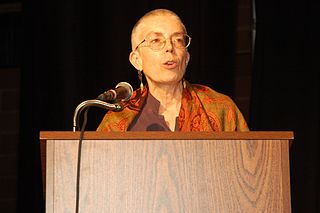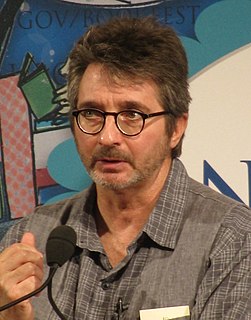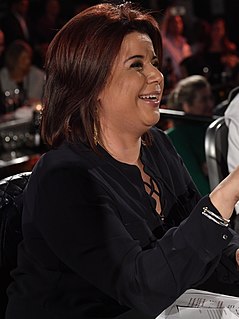A Quote by Jan Clausen
we are far too used to the assumption that poetry and poets will be there when we want them, no matter how long they have been ignored, taken for granted, misused. After all, isn't poetry a form of prophecy, and aren't prophets known for their talent for flourishing in inhospitable deserts and other bleak surroundings? Maybe. But maybe not indefinitely.
Related Quotes
There's a sameness about American poetry that I don't
think represents the whole people. It represents a poetry
of the moment, a poetry of evasion, and I have problems
with this. I believe poetry has always been political, long
before poets had to deal with the page and white
space . . . it's natural.
I tend to like the way poets form communities. Writing can be lonely after all. Modern life can be lonely. Poets do seem to be more social than fiction writers. This could be because of poetry's roots in the oral tradition - poetry is read aloud and even performed. I'm just speculating, of course. At any rate, because poets form these groups, they learn from one another. That is one of the best things about being a poet.
I don't know that I had a sense that there was such a thing as "the poetry world" in the 1960s and early 70s. Maybe poets did, but for me as an onlooker and reader of poetry, poetry felt like it was part of a larger literary world. I mean, even the phrase "the poetry world" reflects a sort of balkanization of American literary and artistic life that has to some extent happened since then.
I didn't ever consider poetry the province exclusively of English and American literature and I discovered a great amount in reading Polish poetry and other Eastern European poetry and reading Russian poetry and reading Latin American and Spanish poetry and I've always found models in those other poetries of poets who could help me on my path.
Poetry is not efficient. If you want to learn how to cook a lobster, it’s probably best not to look to poetry. But if you want to see the word lobster in all its reactant oddity, its pied beauty, as if for the first time, go to poetry. And if you want to know what it’s like to be that lobster in the pot, that’s in poetry too.
We do have to learn poetry at school. Poetry is interesting to me, particularly Chinese poetry. It's like an ancient form of song. There's five sentences, seven sentences - they're very different from English poetry. Chinese poetry is much more rigorous. You can only use this many words, and they will form some kind of rhythm so people can actually sing it. To me, poetry is quite abstract but also quite beautiful.
What I wrote all the time when I was a kid - I don't want to call it 'poetry,' because it wasn't poetry. I was not that kind of a writer. I was a rhymer. I was a fan of Dorothy Parker's, so maybe I wrote poetry to that extent, but my main focus was the humor of it, and word construction, and the slant. Your words, it's a very powerful experience.
My biggest poetic influences are probably 20th-century British and Irish poets. So I suppose I'm always listening for the music I associate with that poetry, the telling images, the brevity. I want to hear it in my own work as well as in the poetry I read. However, I think I'm generally more forgiving of other poets than myself.
Among those today who believe that modern poetry must do without rhyme or metre, there is an assumption that the alternative to free verse is a crash course in villanelles, sestinas and other such fixed forms. But most... are rare in English poetry. Few poets have written a villanelle worth reading, or indeed regret not having done so.
I have no idea, actually, where I fit in, in terms of poetry camps. At AWP conferences, I have been on panels about humor, collaboration, visual poetry, confessional poetry, gender, and the body, as well as tributes to Edward Field and Albert Goldbarth. I felt at home on all of them - most poets straddle more than one school.
The author's conviction on this day of New Year is that music begins to atrophy when it departs too far from the dance; that poetry begins to atrophy when it gets too far from music; but this must not be taken as implying that all good music is dance music or all poetry lyric. Bach and Mozart are never too far from physical movement.





































